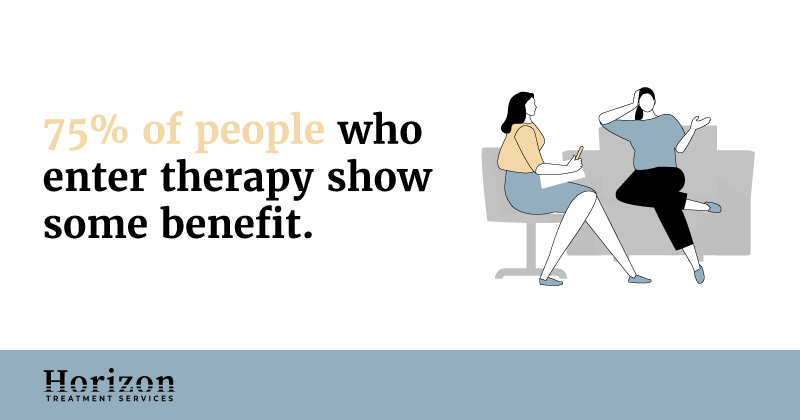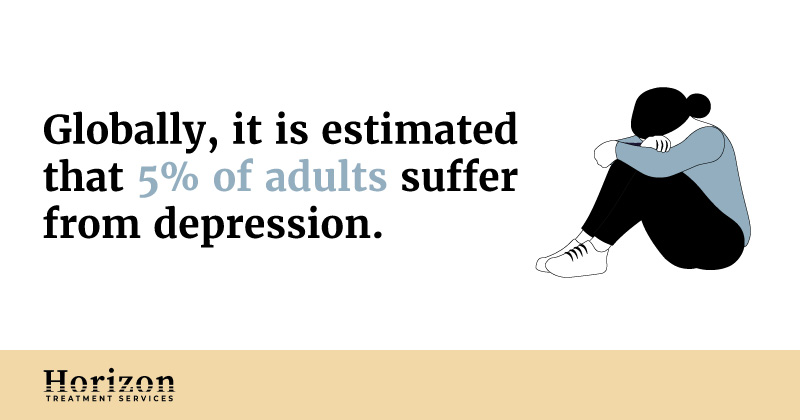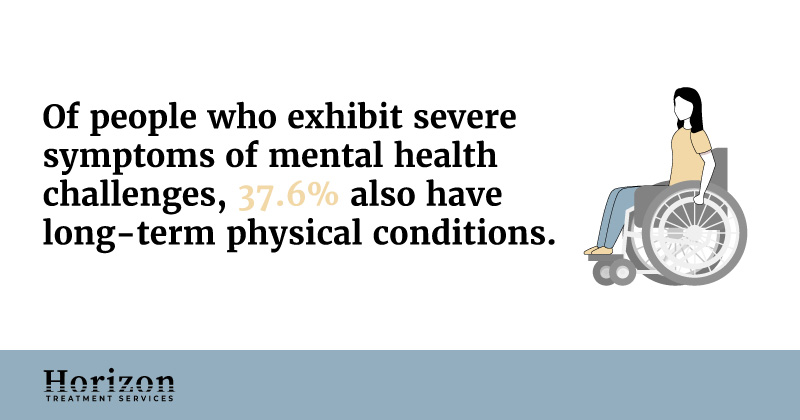What Is Counseling?
The counseling process is focused on learning about yourself and acquiring new skills to help improve your life. Being mentally healthy has many benefits, and counseling can help you learn new skills.
If you need help navigating mental health or any other areas of your life, attending counseling sessions can greatly help your coping skills and overall well-being.
Counseling specifically refers to the professional relationship between a counselor and client to collaboratively create goals and improve problem areas in the client’s life.1

How Does Counseling Help People?
Counseling is a process of using various therapeutic techniques to help people:
- Improve their well-being
- Relieve distress
- Resolve crises
- Increase the ability to function in daily life
- Work through past traumas
Counseling: An Opportunity for Additional Resources and Tailored Support
https://youtube.com/watch?v=mW2Fadfbz5s%3Fcontrols%3D1%26rel%3D0%26playsinline%3D0%26modestbranding%3D0%26autoplay%3D0%26enablejsapi%3D1%26origin%3Dhttps%253A%252F%252Fwww.horizonservices.org%26widgetid%3D1
Goals of Counseling
Part of the process is about meeting with a counselor to determine problem areas, identify goals, and develop skills to help meet those goals. There are many areas that can be addressed during the treatment, including:
- Identifying and challenging negative beliefs
- Identifying and communicating feelings
- Addressing relationship issues
- Identifying and resolving uncomfortable physical sensations in the body
Each counseling process is different for each individual, but all forms should help you to identify your goals and work on the appropriate steps to get you to reach those goals.2
Types of Counseling
There are generally four types of counseling that can occur depending on the need of the person seeking counseling. These will be detailed below.
Individual Counseling
Individual treatment is a one-on-one type of treatment that involves only the individual and the therapist. The purpose of this treatment is to provide the individual with the opportunity to receive personal support and experience growth during a challenging time.
The focus of these sessions will be on the individual, their goals, and addressing any problem areas or challenges.
Group Counseling
Group treatment involves two or more people, along with the therapist, who may be experiencing similar issues. The purpose of group treatment is for the people in the group to come together to resolve challenges or issues.
Group counseling also offers people the opportunity to see they are not alone and learn ways to support themselves as well as each other.3
Who Can Group Counseling Benefit?
Group treatment can help people who are struggling with:
- Interpersonal issues
- Behavioral or learning issues in children or adolescents
- Depression and anxiety
- Trauma
- Addiction
- Personality disorders
- Medical or physical issues
- Grief and loss
- Issues involved with aging
Potential Disadvantages of Group Counseling
Though there are many benefits to receiving treatment in a group setting, there are some disadvantages as well. One of the downsides to a group setting may be that a person does not get the same amount of individual attention as individual treatment.
Also, although steps are taken to protect everyone’s confidentiality in group treatment, a therapist cannot guarantee all members will maintain confidentiality. This may make people more reluctant to share in a group setting.
Family Counseling
Family counseling is a type of counseling that involves working with the family unit to help an individual in the family resolve specific issues. Family treatment may also be used to improve relationships between family members.
The purpose of this treatment is to focus on helping family members improve communication and resolve conflict.4
When Is Family Counseling Beneficial?
Family counseling is a way to improve the support an individual family member may need to handle challenges. This type of treatment is often used to help with:
- Substance use disorders
- Eating disorders
- Behavioral problems
- Physical or medical issues
- Personality disorders
This type of treatment may be sought after a life change or stressor that is affecting the family structure or communication style.
Couples/Marital Counseling
Couples or marriage treatment is a type of counseling focused on helping an individual and their partner improve their relationship. Couples treatment can be used to help any stage of a relationship regardless of age, marital status, sexual orientation, race, or faith.5
The purpose of couples counseling is to assist partners in reconnecting in their relationship and learning new ways to communicate. This type of treatment can be used for any relationship issues, from basic concerns of stagnation to serious aggressive behaviors.
Types of Counseling Approaches

Not only are there different forms of counseling, but there are also many different approaches that can be used in sessions.
There are an increasing variety of approaches that can be used based on a therapist’s training and focus, as well as the needs and goals of the individual, family, or couple. These approaches tend to fall into five broad categories.
Psychodynamic/ Psychoanalytic
This type of approach is often associated with Sigmund Freud. The focus of psychodynamic counseling is on changing problematic thoughts, feelings, and behaviors. This is done by uncovering one’s unconscious meanings and motivations.6
Humanistic
This type of approach emphasizes the individual’s capacity to make rational choices and develop their greatest potential. Humanistic approaches also emphasize looking at the whole person and their uniqueness.
The three main types of humanistic counseling are:7
- Client-Centered Counseling: This rejects the notion that the counselor is an authority and instead helps clients change by using care, concern, and interest.
- Gestalt Therapy: This emphasizes being aware of the here and now and accepting responsibility for oneself.
- Existential Counseling: This focuses on free will, the search for meaning, and self-determination.
Behavioral
Behavioral counseling focuses on observable behaviors rather than thoughts and feelings. It centers on how learning can contribute to the development of both normal and abnormal behaviors.
The behavioral approaches to treatment often focus on the use of conditioning and predicting behavior with the use of stimulus and response association.8
Common Types of Behavioral Treatment
Some common types of behavioral treatment include:
- Exposure Therapy: This involves being exposed to anxieties or fears and working through them using relaxation and other skills.
- Applied Behavioral Analysis: Applied behavioral analysis uses approaches, like positive reinforcement, to increase behaviors that are helpful and mitigate behaviors that are harmful.
- Social Learning Theory: Social learning theory emphasizes the importance of observing, modeling, and imitating the behavior and emotional reactions of others.9
Cognitive
Cognitive treatment emphasizes how people think rather than their behaviors. The belief in this type of approach is that dysfunctional thinking leads to dysfunctional emotions. By changing their thoughts, people can change how they think and behave.
One of the most common types of this type of treatment is cognitive behavioral therapy (CBT). CBT focuses on thoughts and behaviors, as well as how challenging negative thinking patterns can improve emotions and behaviors.10
Cognitive Behavioral Therapy: a Brief Overview
https://youtube.com/watch?v=q6aAQgXauQw%3Fcontrols%3D1%26rel%3D0%26playsinline%3D0%26modestbranding%3D0%26autoplay%3D0%26enablejsapi%3D1%26origin%3Dhttps%253A%252F%252Fwww.horizonservices.org%26widgetid%3D3
Integrative/Holistic
Many counselors do not stick to one approach. They often will use various approaches and techniques to address the individual needs of the client. They may also incorporate more holistic approaches, such as meditation and mindfulness, as an addition to other treatments.
How Counseling Can Help Impact Your Life in Positive Ways
Regardless of the reasons one attends counseling, it can have benefits for almost everyone.
According to the American Psychological Association, 75% of people who enter treatment show some benefit. This means that for the majority of individuals, there is some positive in engaging in treatment.11
Treatment is a great way to manage mental health concerns. Some of the major benefits of counseling include:
Developing Coping Mechanisms
One of the biggest benefits to treatment is learning and developing ways to cope. Working with a therapist helps individuals manage stress and address difficult parts of everyday life. Learning and using coping skills can improve functioning as well.
Improving Support Systems
Treatment can help build and improve support systems. This can be done by improving communication and building stronger relationships. Support is one of the most important things to have when experiencing mental health concerns or dealing with life difficulties.
The benefits of improving social support include:
- Being able to more easily cope with stress and other difficult life events
- Improving motivation by having accountability
- Encouraging healthy behaviors and choices
Struggling with any issues can be difficult to do alone, but counseling can help you gain healthy support systems.
Reducing Symptoms
Those who attend counseling are more likely to have improved mental health over the long term. They also have a greater reduction in symptoms for longer periods of time than those who don’t attend counseling.
Counseling can assist in reducing symptoms of:12
- Depression
- Anxiety
- Trauma
- Suicidal thoughts and urges
- Self-harm behaviors
- Eating disorder symptoms
Improving Well-Being
Not only does treatment improve mental health, but it is also associated with improving physical health and well-being. Mental health and physical health are very connected.
When someone is physically unwell, they are more likely to experience mental health concerns. Of people with severe symptoms of mental health problems, 37.6% also have long-term physical conditions.13
This means that improving mental health with treatment may also have the added benefit of improving physical health.
Developing Feelings of Empowerment
Attending mental health treatment can help improve self-esteem, confidence, and empowerment. A counselor can help individuals recognize and reduce negative self-talk that is affecting confidence and self-esteem.
Here, individuals will also learn how to use self-compassion and set goals, thereby improving overall confidence.

Who Could Benefit From Counseling?
Since mental health and behavioral problems are the primary drivers of disability worldwide, anyone can benefit from treatment. For example, globally, it is estimated that 5% of adults suffer from depression.13
Counseling is often stigmatized and seen as only for those who have severe mental health challenges. However, this is not true. Counseling can help anyone looking to make improvements, develop healthier relationships, and social and mental well-being.
Those Who Might Benefit the Most from Treatment
Treatment is a great way for anyone to engage in self-exploration to gain self-awareness and gain perspective. However, individuals who are struggling may find the biggest benefits in these services.
Those who could benefit from treatment may include individuals who are:
- Experiencing prolonged feelings of sadness and hopelessness
- Experiencing problems that don’t seem to improve despite efforts or help from family or friends
- Finding it difficult to concentrate at work or school and have difficulty carrying out activities of daily life
- Experiencing excessive worry, are constantly on edge, and always expect the worst
- Harming others, either due to alcohol, drug use, or aggressive behaviors
- Experiencing a significant life change or event, such as a divorce, becoming a new parent, or loss of a loved one
How Counseling Can Help Those Who Experienced Adverse Childhood Experiences (ACEs)
Adverse Childhood Experiences – which can range from abuse, social or monetary adversity, or a myriad of other occurrences – often follow people into their adult life. They can manifest as poor coping skills, increased or unhealthy substance use, or strained relationships.
Educating people on how ACEs can affect them and giving them the support they need to overcome their struggles is imperative.
How to Help Individuals Cope With ACEs
Treatment is one such way that people can get the care and help they need if they experienced ACEs.
In fact, studies show that CBT is one of the strongest and most effective ways to offer healing and education to those who were exposed to Adverse Childhood Experiences.14
Reach out to your medical provider today to see what kind of treatment is best for your symptoms and experiences. They can help create an individualized plan and counseling approach for your needs.

How Does Counseling Work?
Counseling is a guided conversation by the counselor. They work with you to find out what concerns or issues you’d like to address and what goals you would like to achieve from the sessions.
These sessions are often between 45 to 90 minutes long and can be anywhere from once or twice a week to once a month.
You, the counselor, and the insurance company often determine the length and frequency of the sessions. The format of the sessions may also determine the length, as group sessions can sometimes occur longer than individual or family sessions.
Acclimating to Counseling and Trusting the Process
Starting out, the counselor will either ask you questions or have you fill out a form providing information on your history and concerns that you may be experiencing. The first few sessions are usually used for getting to know you and understanding what brought you to treatment.
From there, you and the counselor will work together to develop a treatment plan that will include the goals you want to work on.
What to Expect in Counseling
https://youtube.com/watch?v=w8HxpqOH21A%3Fcontrols%3D1%26rel%3D0%26playsinline%3D0%26modestbranding%3D0%26autoplay%3D0%26enablejsapi%3D1%26origin%3Dhttps%253A%252F%252Fwww.horizonservices.org%26widgetid%3D5
How to Get the Most Out of Counseling
Showing up to treatment is the first step, but there are some other things that you can do to make the most out of the sessions. This includes:
Choose Your Counselor Carefully
Don’t settle for any treatment provider – make sure they are right for you. This could mean researching specialties and qualifications. It might also mean attending some sessions with different counselors until you find one who you are comfortable with and fits your needs.
Handle the Business Side First
When you’re in the session, you don’t want to be concerned about things like fees and insurance. Make sure you get any issues or payments squared away before attending sessions.
View Counseling as a Collaboration
Many people believe the counselor is there to fix all of their problems. However, treatment is a collaborative effort. The counselor may be the guide, but you’re the one who carries the responsibility of doing the hard work to make the changes.
Be Open and Honest
Treatment is about being open and honest. It is the place to talk about anything difficult that you may be experiencing. It may be hard, but verbalizing your struggles is beneficial for the process.15
Set Landmarks for Change
Sometimes, it may be difficult to notice changes in counseling. This can affect the treatment process, as you may become discouraged if you believe you are not seeing change. Work with the counselor to agree on indicators for change and celebrate when you reach them.
Do Work Outside of Sessions
The counseling process does not stop when you leave the counselor’s office. To get the most benefit, it is important to do any homework assigned to you and to practice what you learned in the session during your daily life as well.
Set Boundaries
Counseling is a safe space, so it is important to protect it. Sometimes, well-meaning family and friends may ask what you’re talking about or doing in treatment. You are not obligated to answer if you are not comfortable doing so.

How Can Horizon Treatment Services Help Find the Right Counseling for You?
At Horizon Treatment Services, our mission is to help you discover an improved sense of wellness. We provide a wide range of services for a variety of mental health conditions, substance use disorders, and eating disorders.
What Do We Offer?
Horizon Treatment Services provides access or referrals to mental health services at all of our locations. We can help treat co-occurring mental health symptoms that may occur alongside substance use disorder symptoms as well.
We will work with you to create an individualized treatment plan that addresses all of your concerns. We also value holistic treatment and community outreach as a part of the treatment process.
Reach Out Today
If you or someone you love is in need of counseling services, reach out to us today. We are here to help make sure that you or a loved one get the care, education, and support you deserve.
1https://www.goodtherapy.org/what-is-therapy.html
2https://www.verywellmind.com/couples-therapy-definition-types-techniques-and-efficacy-5191137
3https://www.apa.org/topics/psychotherapy/approaches
4https://www.simplypsychology.org/humanistic.html
6https://www.simplypsychology.org/bandura.html
7https://www.apa.org/ptsd-guideline/patients-and-families/cognitive-behavioral
8https://www.apa.org/topics/psychotherapy/understanding
10https://bmcpublichealth.biomedcentral.com/articles/10.1186/s12889-020-08789-0








